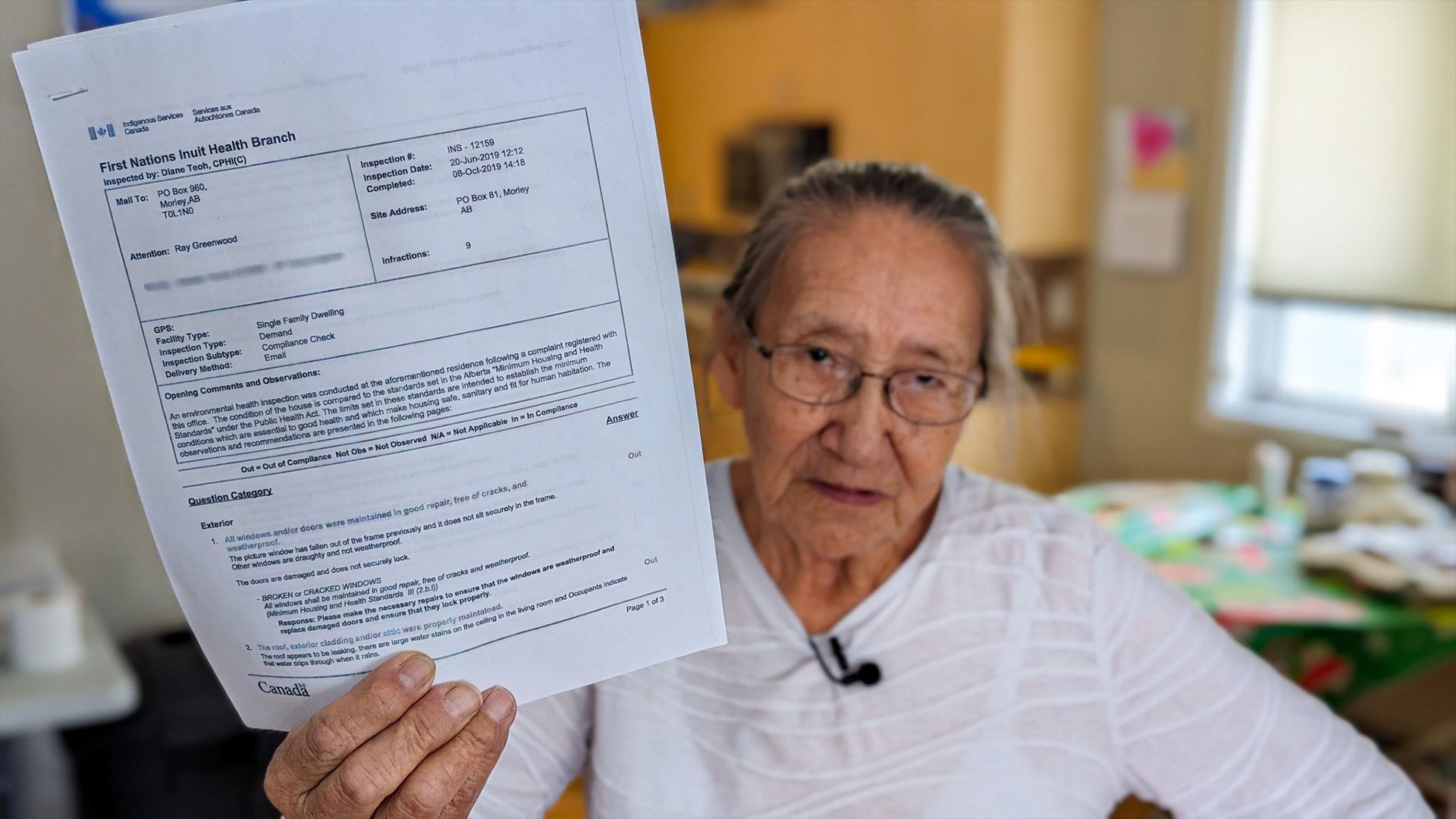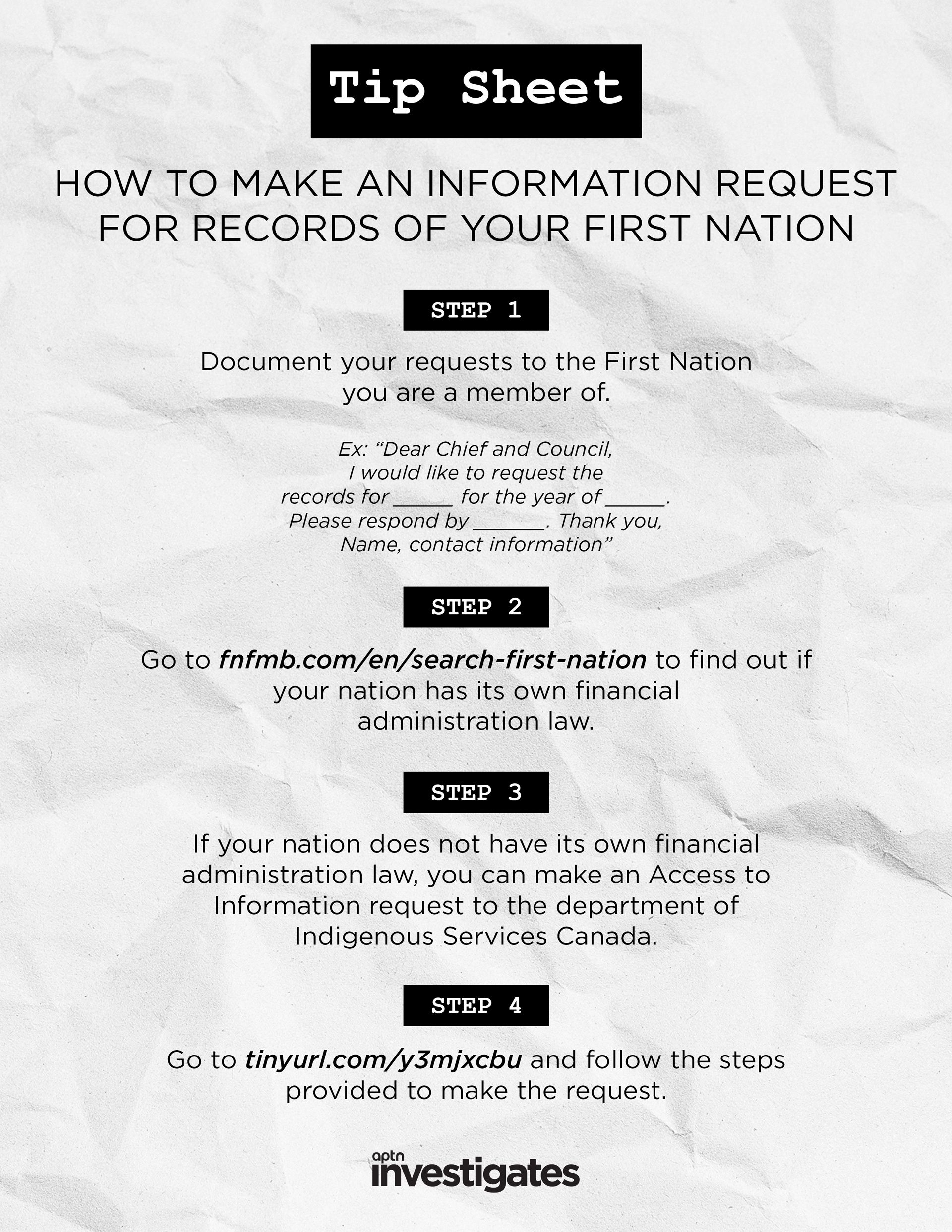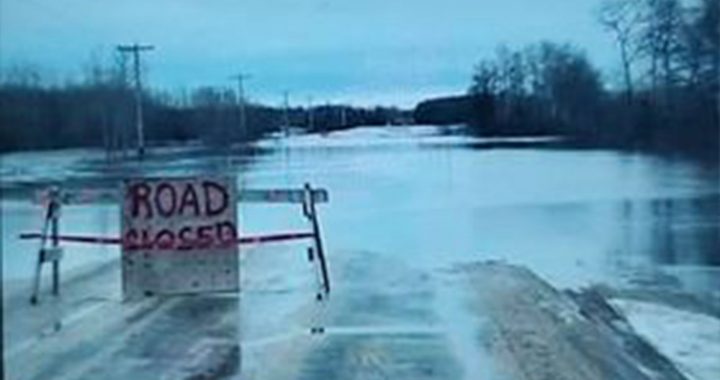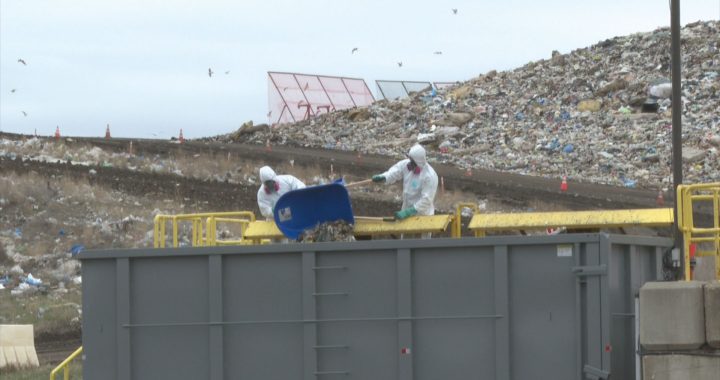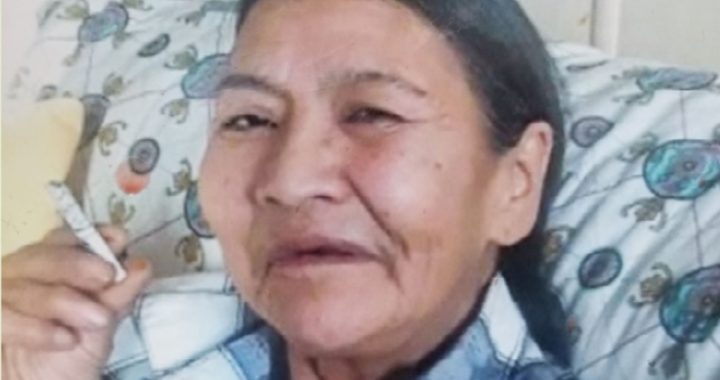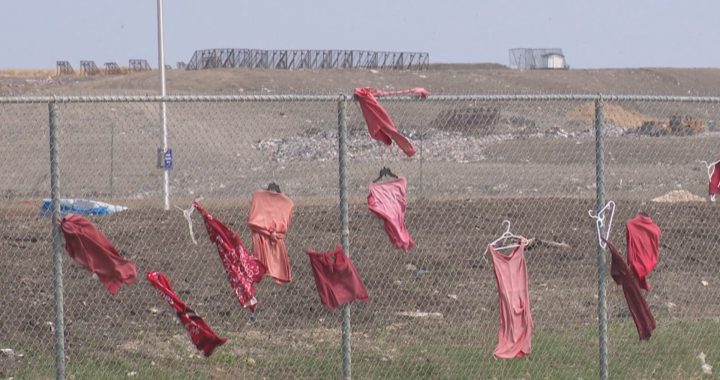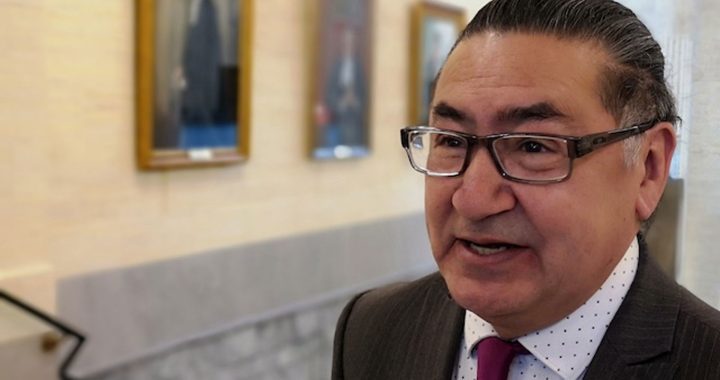Roaring winds and clouds swirl over snowy peaks of the Rocky Mountains.
It’s almost as if the spirits are expressing dismay.
In the Stoney Nakoda language, lyârhe means “people of the mountain” and it’s believed that strong winds are a sign of the spirits who live here.
Pauline Twoyoungmen lives in the foothills of Southern Alberta.
She’s lived here her whole life. It’s more than just her ancestral lands, it’s home.
Until recently, when she was forced to leave everything she knew behind and start again.
Trading the winding streams and valleys for the hustle of big town living.
“I left my reserve … since 2019 we moved out, because of J.R being sick, my husband,” said Twoyoungmen. “He was sick and he end up in the hospital.”
An urgent operation left her husband in need of a safe and comfortable living space.
Not knowing if renovations would ever come to their condemned home, the two decided to leave.
“The cement is cracked, the moist[ure] comes in through there and molds up the walls and washroom,” she said, while recounting the disrepair.
It’s just one of many housing infractions recorded by the First Nations Inuit Health Branch (FNIHB).
Twoyoungmen shared the government report with APTN Investigates. It’s dated June 20, 2019, nearly five years ago.
“Sometimes, ever since we moved here, when there’s no money left, we have to go just one meal a day,” said the 82-year-old, noting the most significant adjustment to living in Cochrane, Alta.
The FNIHB report is addressed to the CEO of Goodstoney, but no repairs have been made to her house.
A lawyer’s letter addressed to the band council on behalf of Twoyoungmen that was sent over a year ago remains unanswered.
APTN Investigates made several attempts to ask leaders of the membership team when or if repairs could ever be expected.
But the silence from chief and council raised more questions than anticipated.
“Who are they answering to?” said Kenny Hunter, a member of the Stoney Nakoda nation.
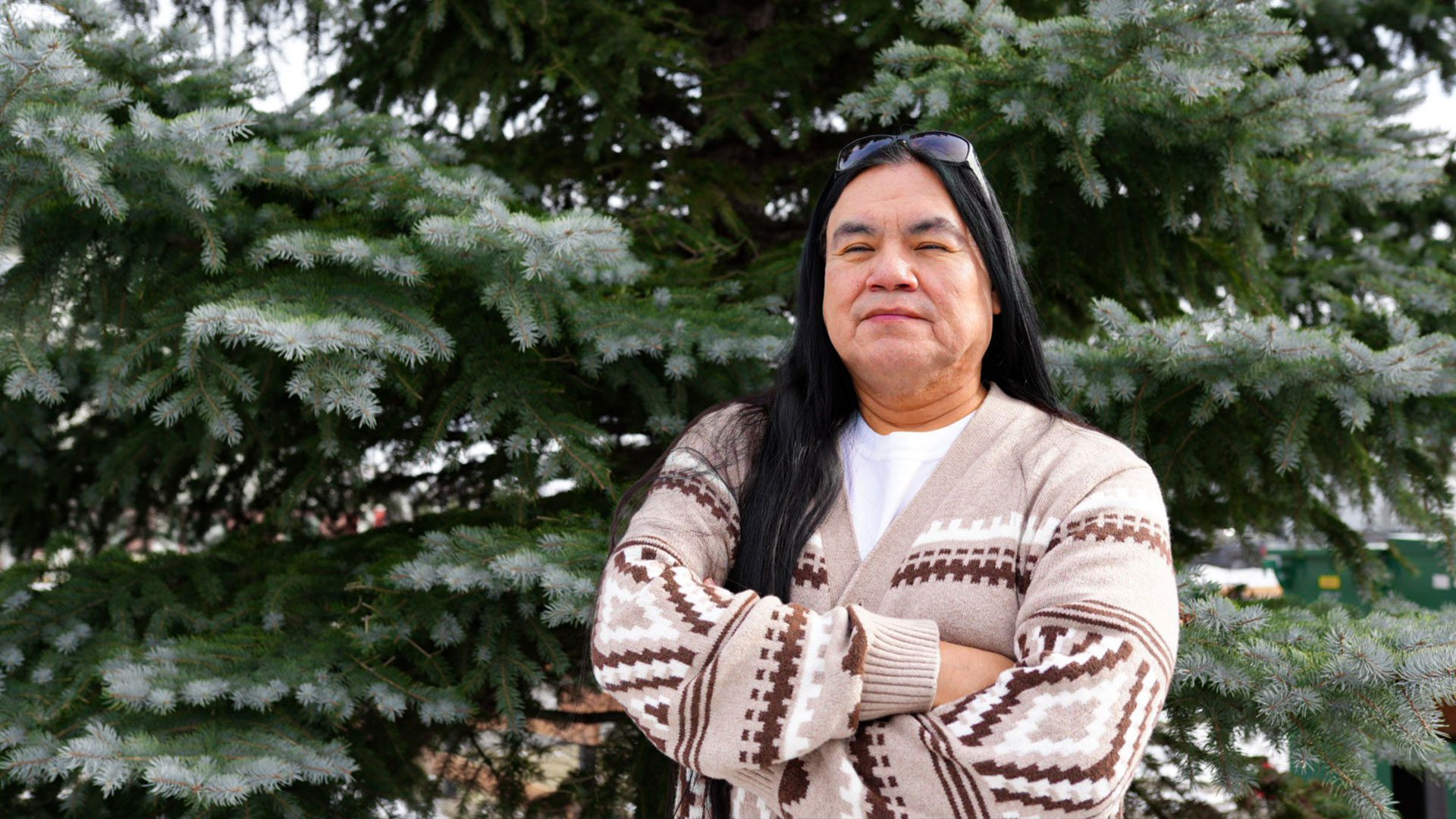
He’s one of several people who brought forward legal action against the nation.
Their goal was to have the leadership release five years of missing financial records.
“The public has a right to know how our money is being spent,” said Hunter.
Muriel Labelle and Wanda Rider teamed up with Hunter to get Stoney Nakoda to release the records being withheld under the First Nations Financial Transparency Act (FNFTA).
Over the years, and through different leadership administrations, the names of these nations have changed.
But today, the Goodstoney, Chiniki and the Bearspaw bands all make up the Stoney Nakoda nation.
Hunter, Labelle and Rider each represent one of the three nations in Stoney Nakoda.
Among their concerns are the soaring costs for the 15 councillors and chiefs.
As well as the children and Elders who go without essential services in their communities like housing.
Rider says it’s common to hear people say they want their community to be a sovereign nation.
“I agree that we don’t need to answer to Canada, but we do need to answer to our membership,” she said.

An APTN investigation revealed 65 per cent of all First Nations that are required to publish their financial records did not comply with the FNFTA.
The FNFTA was enacted under the government of former prime minister Stephen Harper in 2013, but came under fire from First Nations leadership for a lack of consultation.
It hasn’t been actively enforced since 2016 when Justin Trudeau and the Liberal party came to power.
Eight years later, consultations are still ongoing to replace the act. Meanwhile, folks like Rider, Walker, and Labelle are forced to take legal action.
Paul Reid was the lawyer for the trio.
“If the band has failed to follow the provisions of the legislation, then you have legislative recourse,” said Reid, referring to any First Nation required to disclose under the FNFTA.
After several months of discussion between the applicants and members of the Stoney Nakoda leadership, the documents were released.
But it cost the nation thousands of dollars in legal fees.
“From my perspective, it would be would have been easier to simply comply, rather than to resist, in the first instance,” Reid said.
APTN reviewed the financial records for Stoney Nakoda and in many years, the expenses claimed by elected officials were equal to or greater than the salaries.
However, the Schedule of Remuneration and Expenses under the FNFTA does not require a nation to provide a breakdown of the leadership’s expenses.
Hunter, Labelle and Rider say it should.
According to Hunter, a First Nations Auditor General is urgently needed to help address the issue of financial transparency in Indigenous communities.
Read More:
‘Enough is enough:’ Court rulings stack up against band council
The court documents revealed the outgoing leadership members receive a severance cheque when they are not re-elected.
The only year the nation disclosed severance pay is for 2022.
But, according to the court documents, the nation agreed to pay leadership members severance going back as far as 2005.
It’s unknown how much has been paid to members ousted over nearly 20 years.
But in 2022 the nation paid nearly $350,000 for a single election cycle.
Stoney Nakoda leadership did not respond to our repeated interview requests.
So, what happens when all options to gain transparency on a First Nation have been exhausted?
APTN asked Indigenous Services Canada (ISC) what recourse there is for First Nations members who have been stonewalled by their nation.
Buried in a lengthy back-and-forth email thread, ISC provided a little-known course of action.
If you belong to one of the over 300 First Nations that does not have a financial administration law, an access to information request can be filed to ISC for financial information.
APTN created a tip sheet on how to access records from your band council.
But for Pauline Twoyoungmen, she just wants to know how decisions are being made for housing in her community.
“I do get sad, but what can you do? Nothing,” she said, while smiling the discomfort away.
There’s no telling when or if Twoyoungmen will ever be able to return to Goodstoney.
“Do they ever think about us Elders being out here instead of being an Elder out there on the reserve?” she said. “People forget about us.”




